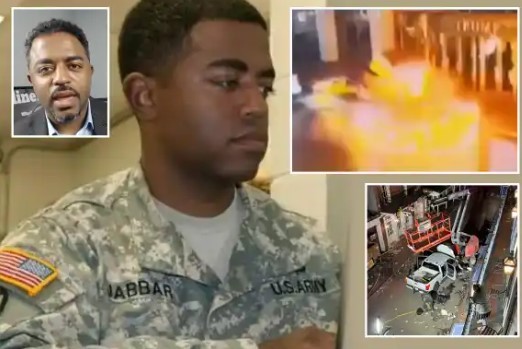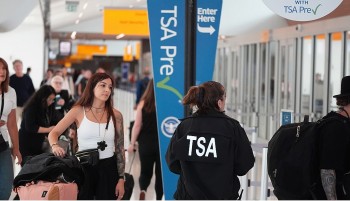Who Are the Ex-Wives, Tiera, and Children of Shamsud-Din Jabbar?
 New Orleans Terrorist Shamsud Jabbar: Over 10 Years in U.S Army With Medals New Orleans Terrorist Shamsud Jabbar: Over 10 Years in U.S Army With Medals |
 Chilling Links Between New Orleans Attack and Tesla Cybertruck Explosion: Terror Trail? Chilling Links Between New Orleans Attack and Tesla Cybertruck Explosion: Terror Trail? |
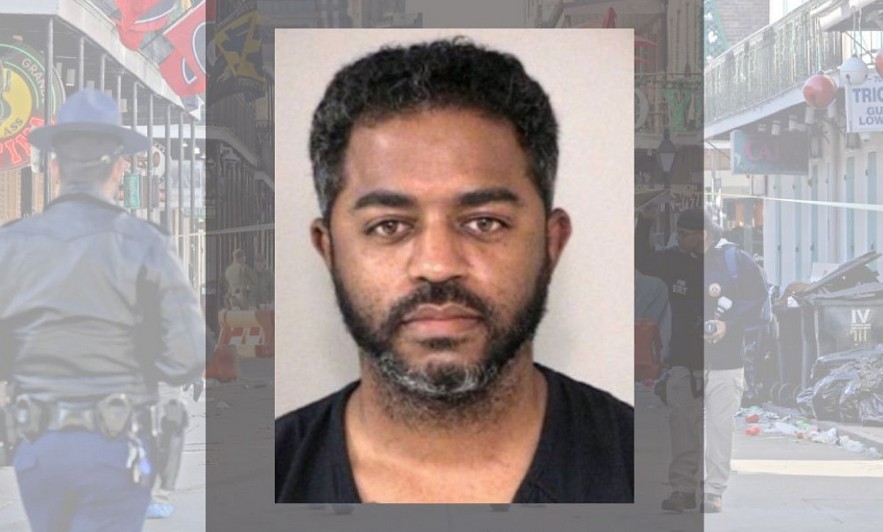 |
| Shamsud-Din Jabbar was Beaumont native with 3 ex-wives and 3 children |
Shamsud-Din Jabbar, the man responsible for the New Orleans terror attack that claimed 15 lives on New Year’s Day 2025, lived a life marked by deep personal turmoil and fractured relationships.
Jabbar’s three marriages, all of which ended in divorce, and his estranged relationships with his three children provide a glimpse into the emotional, financial, and social struggles that may have contributed to his eventual radicalization.
Who is Tiera? Ex-Wife of Shamsud-Din Jabbar
Tiera, a former wife of Shamsud-Din Jabbar—the man accused of carrying out the New Year’s attack in New Orleans—has shared her thoughts on their turbulent past. She describes their marriage as "abusive" but says she is shocked to learn of his alleged involvement in mass violence. Notably, Tiera is not the same wife who filed a restraining order against Jabbar in 2020.
Tiera revealed she was married to Jabbar for approximately five years before their divorce in 2016. Reflecting on their relationship, she recounted experiencing abuse but refrained from providing specific details. Despite their troubled history, Tiera expressed disbelief over Jabbar’s alleged capacity for committing mass murder, stating she never anticipated such a violent turn in his life.
According to Tiera, her last contact with Jabbar occurred about two months ago when he reached out to her via Facebook. He messaged her to reflect on their shared grief over a personal tragedy—the loss of their son. Tiera suffered a miscarriage six months into her pregnancy during their marriage. Jabbar reportedly asked for some of their late son's belongings, leading to a reflective and civil conversation.
Tiera said this interaction gave her the impression Jabbar was in a better place emotionally. However, she decided to block him afterward to maintain distance and continue moving forward with her life. Before this exchange, the two had not been in contact for several years.
During their marriage, Jabbar was not religious, Tiera said. However, she later learned through Facebook that he had embraced Islam. She expressed surprise at this shift, noting it was a marked change from the person she knew.
Tiera was married to Jabbar before his subsequent wife, who filed a restraining order against him in 2020. Court records show the restraining order prohibited Jabbar from inflicting violence on his spouse or child and barred him from abducting their child.
Tiera's accounts and the details of Jabbar’s legal issues paint a picture of a man with a history of troubled relationships and allegations of abuse. However, she insists she never suspected he harbored the level of animosity that could lead to a violent attack.
As the investigation into the New Year’s attack unfolds, questions remain about Jabbar’s motives and how his life took such a dark turn. Tiera’s story offers a glimpse into his past but leaves much about his recent life shrouded in mystery. For now, she remains in disbelief, struggling to reconcile the man she once knew with the accusations against him.
The Three Marriages of Shamsud-Din Jabbar
First Marriage: Nakedra Charrlle Jabbar
Jabbar’s first marriage to Nakedra Charrlle Jabbar was brief, ending in divorce in 2012. The couple shared two children, but Jabbar's failure to meet child support obligations became a source of tension. Nakedra described Jabbar as a man who struggled to handle responsibilities, leading to the breakdown of their relationship.
While this marriage ended relatively quietly, it marked the beginning of Jabbar's struggles with interpersonal relationships and financial accountability, laying the groundwork for the difficulties that followed.
Second Marriage: Allegations of Family Violence
Jabbar’s second marriage, which ended in 2020, was far more contentious. According to court records, Jabbar filed for divorce, citing fears of being "subjected to family violence" if he shared sensitive information with his spouse. This detail reveals an atmosphere of mistrust and conflict that characterized the relationship.
During the divorce proceedings, Jabbar’s behavior grew increasingly erratic. His ex-wife successfully obtained a restraining order, and court documents show that financial instability further exacerbated tensions. Despite earning a substantial salary during this time, Jabbar reported significant financial hardship, suggesting deeper struggles with managing his personal and professional responsibilities.
In videos released before the attack, Jabbar admitted to initially planning to harm his family, stating that he “wanted to kill them” but ultimately decided against it. This chilling revelation underscores the depth of his grievances and the extent to which personal turmoil influenced his extremist trajectory.
Third Marriage: A Private and Troubled Union
Jabbar’s third marriage remains shrouded in mystery. The union, which produced one child, ended in divorce under undisclosed circumstances. While there is little public information about his third wife, the relationship’s dissolution appears to have added to Jabbar’s growing isolation and resentment.
By the time of his third divorce, Jabbar had become a man consumed by frustration, viewing his failures as a consequence of betrayal by those closest to him. This narrative of perceived injustice played directly into the hands of extremist ideology.
Learn more: How Safe Is America? Three New Year Bloody Attacks, One Question
The Role of Family Violence and RadicalizationThe revelations about Jabbar’s intention to harm his family are particularly troubling. While he ultimately decided to target a public setting instead, his initial plans highlight the profound impact of his personal conflicts on his mindset. This internalized anger and dissatisfaction became a driving force behind his decision to carry out an act of mass violence. Experts note that individuals experiencing familial turmoil are at greater risk of radicalization, particularly when these issues coincide with other vulnerabilities such as financial stress, social isolation, and exposure to extremist propaganda. Jabbar’s fears of family violence, coupled with his estrangement from his children, created fertile ground for the development of extremist beliefs. |
The Three Children
Jabbar’s three children, two from his first marriage and one from his third, were largely estranged from him at the time of the attack. His eldest children, now in their teenage years, were reportedly shielded from Jabbar due to concerns raised by their mothers.
His younger child, born during his third marriage, had minimal interaction with him, as Jabbar’s financial and legal troubles made consistent parenting difficult. Friends and family reported that Jabbar expressed feelings of failure and regret regarding his inability to provide for his children, further exacerbating his emotional instability.
Family Struggles and the Path to Radicalization
Jabbar’s repeated failures in marriage and family life were not merely personal challenges; they became catalysts for his descent into extremism. Experts on radicalization note that personal crises—such as divorce, estrangement from children, and financial instability—can leave individuals vulnerable to extremist ideologies that offer a sense of purpose and belonging.
Financial Stress and Alienation
Jabbar’s financial difficulties played a significant role in his radicalization. Despite holding high-paying jobs, including a $120,000-per-year position at Deloitte, Jabbar faced mounting debts and unpaid child support obligations. These struggles fed into a growing narrative of grievance, as Jabbar increasingly blamed others—his ex-wives, the legal system, and society at large—for his troubles.
Social Isolation
The breakdown of his marriages left Jabbar socially isolated. Friends who reconnected with him in recent years described him as reserved and distant, a stark contrast to the outgoing and articulate man they had once known. Jabbar’s social withdrawal coincided with his growing immersion in extremist online communities, where he found validation for his frustrations and a new sense of identity.
Religious Conversion and Radicalization
Jabbar converted to Islam at a young age, but his family emphasized that his faith did not play a role in his actions. His younger brother, Abdur Jabbar, stated, “What he did does not represent Islam. This is more about radicalization, not religion.” However, Jabbar’s increasing focus on extremist interpretations of Islam became evident in the videos he posted before the attack, where he pledged allegiance to ISIS and expressed a desire to carry out violence against “disbelievers.”
Investigators believe Jabbar consumed significant amounts of ISIS propaganda online, which exploited his personal grievances and reinforced his belief that violence was justified. This aligns with the strategies of modern extremist groups, which target individuals who feel marginalized or disillusioned.
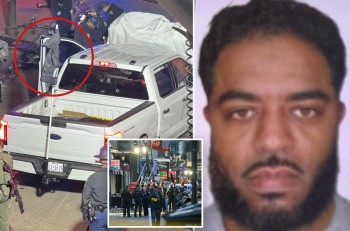 The Motives of New Orleans Deadly Attack: Jabbar’s Ties to ISIS's And Path to Radicalization The Motives of New Orleans Deadly Attack: Jabbar’s Ties to ISIS's And Path to Radicalization |
Videos and Public Statements
In the days leading up to the attack, Jabbar posted five videos in which he outlined his grievances and ideological motivations. Initially, he planned to harm family and friends but decided against it, believing that such an act would not garner sufficient attention. Instead, he shifted his focus to a large-scale attack on Bourbon Street, aiming to amplify his message of hatred and violence.
In these recordings, Jabbar appeared resolute, referencing his allegiance to ISIS and describing himself as a “soldier of the caliphate.” He provided a will and testament, a grim indication of his commitment to his deadly plans.
What Those Close to Jabbar Said
While Jabbar’s actions shocked his community, some noted warning signs in his behavior. A neighbor in Houston described him as “quiet and non-violent,” but others recalled his growing estrangement and erratic conduct. Dwayne Marsh, the husband of Jabbar’s second ex-wife, recounted how Jabbar’s behavior had become increasingly erratic, leading them to limit his contact with his children.
Friends who reconnected with Jabbar in recent years were equally stunned. One high school friend described him as intelligent and reserved but noted a shift in his social media posts, which began focusing heavily on his faith and grievances.
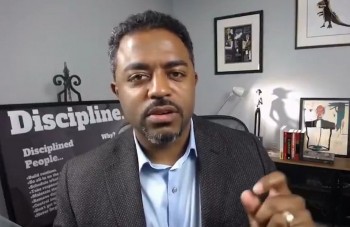 What's Inside the Confessional Videos of New Orleans Terrorist? What's Inside the Confessional Videos of New Orleans Terrorist? |
Conclusion
Shamsud-Din Jabbar’s radicalization was not an overnight transformation but a gradual descent fueled by personal failures, financial struggles, and ideological exploitation. His turbulent relationships, estrangement from his children, and immersion in extremist propaganda culminated in the deadly New Orleans attack.
Understanding the factors that led to Jabbar’s radicalization is crucial in preventing similar tragedies. By addressing the vulnerabilities that make individuals susceptible to extremism—such as social isolation, financial instability, and unresolved personal grievances—society can work toward building resilience against radical ideologies. While Jabbar’s actions cannot be undone, learning from his story may help prevent others from following a similar path.
 List of 15 Victims in New Orleans Terror Attack: Honoring their Lives and Legacies List of 15 Victims in New Orleans Terror Attack: Honoring their Lives and Legacies A pickup truck collided with a crowd on Bourbon Street in New Orleans during New Year's celebrations early Wednesday morning, resulting in the deaths of ... |
 Chilling Links Between New Orleans Attack and Tesla Cybertruck Explosion: Terror Trail? Chilling Links Between New Orleans Attack and Tesla Cybertruck Explosion: Terror Trail? Federal investigators are looking into the possibility of a connection between the deadly truck attack in New Orleans on Wednesday and the deadly explosion outside ... |
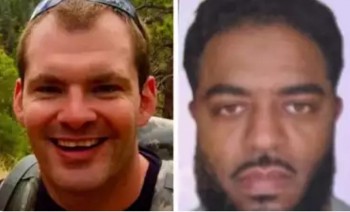 U.S Army Link Between New Orleans Attack And Tesla Cybertruck Explosion U.S Army Link Between New Orleans Attack And Tesla Cybertruck Explosion There apparently is a shocking connection between the Cybertruck explosion outside Trump Hotel and the New Orleans truck ramming. |
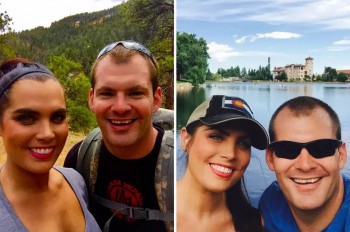 Who is Sara Livelsberger, Wife of Matthew Livelsberger - Cybertruck Attack Suspect Who is Sara Livelsberger, Wife of Matthew Livelsberger - Cybertruck Attack Suspect Sara Livelsberger, a social worker and registered Democrat, gained public attention following the tragic events involving her husband, Matthew Livelsberger, who was identified as the ... |

